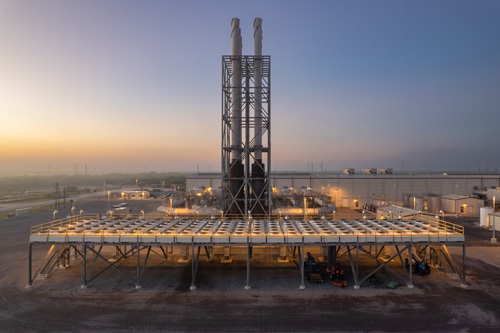

In the quest for sustainable and efficient energy solutions, the gas engine has emerged as a transformative force. This technology has not only revolutionised energy provision but also paved the way for cleaner, more reliable, and versatile power generation. As the world grapples with the dual imperatives of meeting growing energy demands and addressing climate change, the gas engine stands out as a beacon of innovation and progress.
Among the various energy sources, gas engines have emerged as a pivotal technology, offering a balanced solution that supports both energy reliability and environmental responsibility. From increased reliability to reduced emissions, the journey from fuel to power is now more efficient than ever.
The Genesis of Gas Engines
Gas engines have a long and storied history, dating back to the late 19th century when innovators sought alternatives to steam power. The early gas engines were rudimentary, often plagued by inefficiency and reliability issues. However, over the decades, continuous advancements in engineering and materials science have propelled gas engines to the forefront of modern energy systems.
How Gas Engines Work
At their core, gas engines operate on the principle of internal combustion, where a mixture of air and fuel (typically natural gas) is ignited within a cylinder to produce mechanical power. This power is then converted into electrical energy through a generator. The efficiency of this process has been significantly enhanced through various technological innovations, making modern gas engines remarkably efficient and reliable.
Key Advantages of Gas Engines
- Efficiency and Reliability: Modern gas engines boast high efficiencies. This means that a significant portion of the energy content in the fuel is converted into usable power, reducing waste and optimising performance. Additionally, gas engine components undergo rigorous precision engineering, ensuring optimal performance and reliability. This reliability translates to uninterrupted power supply for businesses, reducing downtime and maximizing productivity.
- Environmental Benefits: One of the most compelling advantages of gas engines is their lower environmental impact compared to traditional fossil fuel-based power generation. Natural gas, the primary fuel for these engines, produces fewer emissions of harmful pollutants such as sulphur dioxide (SO2), nitrogen oxides (NOx), and particulate matter. Moreover, gas engines emit significantly less carbon dioxide (CO2) per unit of energy produced, contributing to the global effort to combat climate change.
- Versatility and Flexibility: Gas engines are incredibly versatile and can be used in various applications, from large-scale power plants to decentralised energy systems. They can operate on a range of fuels, making them adaptable to different energy resources and regional needs. This flexibility ensures that gas engines can be integrated into diverse energy systems, enhancing overall energy security.
- Rapid Response and Load Management: Unlike other power generation technologies, gas engines can ramp up and down quickly, making them ideal for managing variable loads and integrating with renewable energy sources. This rapid response capability is crucial for maintaining grid stability in the face of fluctuating demand and the intermittent nature of renewable energy.
- Integration with Smart Technologies: Modern gas engines are designed to integrate seamlessly with smart technologies. This connectivity enables real-time monitoring of performance, proactive maintenance scheduling, and optimised operation for peak efficiency. Wärtsilä’s gas engine solutions, when deployed with our GEMS Digital Energy Platform. monitors, controls, and optimises energy assets on both site and portfolio levels. Addressing complex technical and economic factors, GEMS supports a wide variety of power electronics to achieve optimal system performance. Utilising machine learning together with historic and real-time data analytics to optimise the asset mix, the energy management software enables our customers to remotely monitor, operate, identify, and diagnose equipment with unrivalled safety, reliability, and flexibility.
The Role of Gas Engines in a Sustainable Future
As the global energy landscape continues to evolve, the role of gas engines is becoming increasingly vital. They serve as a formidable bridge technology, facilitating the transition from coal-based power generation to a more sustainable energy mix. By complementing renewable energy sources such as wind and solar, gas engines help to smooth out supply inconsistencies and ensure a stable and reliable power supply.
Moreover, advancements in gas engine technology are uncovering new possibilities for carbon capture and utilisation and hydrogen blending, further enhancing their positive environmental credentials. These innovations are set to make gas engines an integral part of the decarbonised energy systems of the future. The blend of reliability, efficiency, and sustainability makes gas engines a clear choice for those looking to power their operations responsibly.
As we look to the future, the continued development and deployment of gas engine technology will be crucial in meeting the twin challenges of energy security and environmental sustainability. By harnessing the power of gas engines, we can build a cleaner, more resilient energy infrastructure that serves the needs of present and future generations.
Did you like this? Subscribe to Insights updates!
Once every six weeks, you will get the top picks – the latest and the greatest pieces – from this Insights channel by email.
